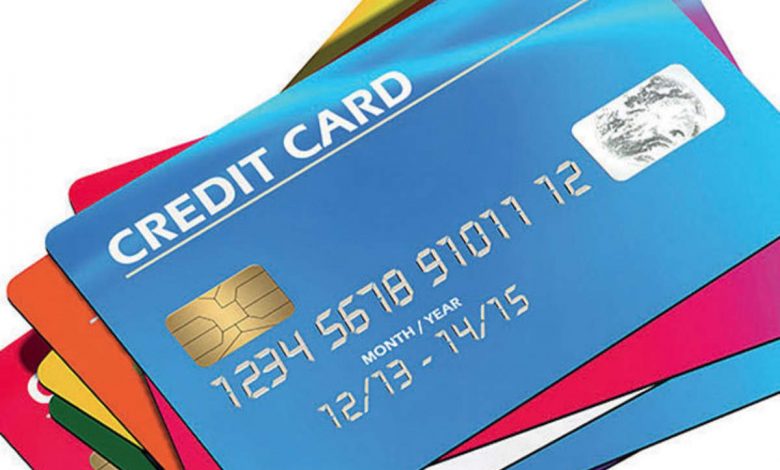Five Ways to Avoid Paying Credit Card Interest

A credit card is one of the most powerful financial tools if used wisely. Credit cards are an easy way to make payments for your purchases, earn reward points, withdraw money from ATMs, maintain a good credit score, etc. At the same time, if used carelessly, it can increase your debt obligations as credit card interest rates are very high. Hence, its proper management is a great responsibility. Here are a few ways you can avoid paying interest on your credit card balance.
-
Do not pay your bill late
One of the easiest ways to avoid paying interest on your credit card balance is by paying off your entire bill amount each month before or on the due date. If you do a late or partial payment, you will be obliged to pay credit card interest.
All credit card companies allow you to pay a minimum amount, 5% of the outstanding balance every month, and carry the rest to the next month. But this unpaid part of your credit card bill will attract an interest charge as well as taxes. In India, credit card companies usually charge a monthly interest of 3-4% on the balance left after paying the minimum amount. So, if you have the habit of paying the minimum amount every month, your credit card bill will multiply quickly, and soon you’ll find yourself in a massive debt burden.
Late payments can impact your credit score. With an inferior credit score, you may find it challenging to obtain loans and other credit at a fair interest rate in the future. These days, there are different online and offline hassle-free ways to make your credit card bill payment without missing the due date.
-
Enjoy the interest-free period to its maximum extent
Credit card companies offer an interest-free period or grace period to their customers. Usually, this grace period ranges between 15-45 days; however, certain issuers provide an extended grace period. But, if you’re having the habit of rolling over the outstanding balance, you won’t be able to enjoy this interest-free period.
An interest-free period or grace period is the stretch between your bill cycle’s end and the payment due date. Remember, all your purchases in a billing cycle won’t enjoy the same grace period. For instance, for a statement for the period between 16 April and 15 May, the due date is 2 June. Suppose you made a purchase on 24 April. Here, the grace period will be from 24 April to 2 June, i.e., 40 days. Assume that you made another purchase on 14 May. The grace period for this purchase will be 20 days only.
Hence, it’s wise to make your big-ticket purchases at the starting of the billing cycle to enjoy the interest-free period to its maximum extent.
-
Use cash advances wisely
You can withdraw cash from your card’s credit limit, i.e., withdrawing money from an ATM using your credit card. It’s called a cash advance, and usually, these withdrawals are not eligible for an interest-free period as they are not considered purchases but loans. Interest on cash advances will be calculated from the date you have made the withdrawal. Apart from this, you are obliged to pay a processing fee for each withdrawal. And the amount of these charges depends upon the quantity of your advance. As the credit card interest rate for advances is very high, use this benefit only in emergencies and repay it as early as possible.
Yet, there are a few credit card issuers who offer an interest-free period on cash advances. Bajaj Finserv RBL Bank SuperCard is one among them. Bajaj Finserv RBL Bank SuperCard offers an interest-free period of up to 50 days with a processing fee of 2.5%.
-
Convert your big-ticket purchases into EMI
If thoughts of paying off big-ticket purchases are giving you sleepless nights, you can easily convert them into EMIs. While converting your large purchases into EMIs, you can enjoy a lower interest rate than your usual credit card interest rates. Also, at the time of conversion, you can select a flexible tenure, and usually, it ranges between 6 to 24 months.
Several credit card issuers do not allow you to convert older purchases into EMIs. So it’s wise to opt for an EMI option at the time of purchase. Further, EMI payments are not eligible for reward points. So, all reward points earned will be reversed while converting the transaction into EMIs. Like with any other debt, you’re required to pay the principal as well as the interest every month to the card issuer to clear your dues. Apart from this, you are obliged to pay a one-time processing fee to enjoy this facility.
Bajaj Finserv RBL Bank SuperCard allows you to convert all your purchases above Rs.3,000 into EMIs at an affordable interest rate.
-
Set your credit limit at a comfortable level
If your credit limit is high, then you are likely to overspend. And it may lead to credit risk. Hence, keep the credit limit within your repayment capacity. It’s also wise to keep track of your expenses and check your credit card statement periodically as they help you anchor overspending. It also aids to spot any foul play in your account.
-
A bonus point for multiple cardholders – Bank Transfer
Bank transfer refers to transferring the balance from one credit card (usually the one with a higher interest rate) to another with a lower interest rate. Credit card companies will charge a processing fee, typically 1% of the amount transferred, from you. However, a few issuers offer zero-interest bank transfers. Normally, you need to repay the balance between three to twelve months in a zero-interest bank transfer. Remember, if you frequently transfer balance between cards, then your credit score will take a dip.
Conclusion
Benefits and terms & conditions of credit cards vary from issuer to issuer. Therefore, compare the features like interest-free period, interest rate, rewards, etc., of various cards before selecting the one that suits you the best. Bajaj Finserv RBL Bank SuperCard is loaded with several features that take care of almost every cash requirement.



